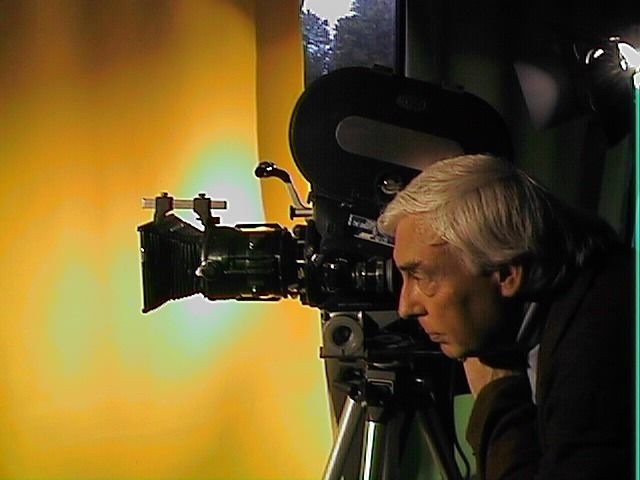ASK & DISCUSS
INDEXBizarre copyright ruling in USA
11 years, 7 months ago - Paddy Robinson-Griffin
Actress given copyright interest in film in which she acts. OK, she has good reason but the precedent this sets is going to make things interesting/difficult in the US until it's resolved.
http://www.techdirt.com/articles/20140226/12103626359/horrific-appeals-court-ruling-says-actress-has-copyright-interest-innocence-muslims-orders-youtube-to-delete-every-copy.shtml
Only members can post or respond to topics. LOGIN
Not a member of SP? JOIN or FIND OUT MORE
11 years, 7 months ago - Peter Ward
I feel like copyrighting an actor's performance makes as much sense as copyrighting anything done--IP laws are utterly absurd to begin with. If a "performance" recorded by a typewriter can be copyrighted why not one recorded by a camera?
11 years, 7 months ago - Andrew Forbes
Interesting how there is so much confusion over copyright – it is a fairly hair-splitting concept. Royalties are everything to do with copyright, Dan, it’s the fundamental concept they’re based on – and a writer still holds the copyright to story and characters he/she creates, regardless of what’s done with them; the producer of a film which uses them holds the copyright to them as portrayed in that film, but that doesn’t stop the writer re-using them pretty much as he/she pleases. Even another film which uses the same story and characters can be deemed a different interpretation (which is where the hair-splitting – and doubtless hair pulling-out – comes in) – but that is the strict law of copyright, which is why so many creative contracts can be so complex. The case in question is confusing copyright with creative control.
11 years, 7 months ago - Dan Selakovich
You're right about royalties. I used the wrong term. I meant residuals (and being someone who lives off royalties, that was quite the brain fart on my part).
As for writers using their characters and owning the copyright on their script: what you say is true, but not in the real world. Never, ever, have I seen a studio contract that allowed the writer to independently write a script with the same characters and sell that script to a competing studio or anyone else, for that matter.
11 years, 7 months ago - Vasco de Sousa
Okay, it's like stock footage. If you use a person's likeness in stock footage for your film, you may have to pay again. They agreed to the original film that their image was used in, but they didn't agree for it to be in stock footage. So, the filmmaker does not have all the rights.
The original film wasn't made. Stock footage of her was being used for a film she never agreed to make.
We'd have to look at the contract to be sure, but in the contracts I've seen, you tend to contract for one film.
The film that was released was not the film the actress agreed to make. It was tampered with, and used as stock footage in the final film. Work for hire doesn't mean you loose all copyright, especially when the footage has been fraudulently obtained.
The fraud in the contract would normally nullify the contract anyway. And, you normally keep the right not to have your likeness used in a sequel without your permission. Did the employer keep up his side of the bargain in the work for hire? No.
Now, copyright isn't the only issue here, it's likeness. There are laws in California, New York, France and elsewhere that govern how you can use an individual's likeness.
There could be slander laws applicable as well. By showing her in this film in this way, it makes it appear that she agreed to be in one.
Just because you agree to work on a film, that doesn't mean you agree to be the poster child for any political cause the filmmaker may have. The film could be edited to take out her image.
It's simple, just be honest with your cast about what kind of film you're making. That's not hard. Show them the actual script. You might need to make minor adjustments in the editing room, but most actors will understand that.
In my last contract with talent, we had the title of the film in the contract. The talent read the script ahead of time, before signing. That's the film we agreed to make.
11 years, 7 months ago - Franz von Habsburg FBKS MSc
I'm not getting into this except to say I'm glad I'm not in the US! It also sounds (not mentioned) that she didn't sign a release. As for a gagging order, we (the film community) are international so are not covered by any such order and can and will discuss anything we damn well like outside to US. Or does the gagging order extend to the NY SP?? We have a major problem if any crew member (and an actor is just another crew member) then has a power of veto over the film's release. The release form which they MUST sign should contain a waiver. When I attend the BAFTAs which is televised, the ticket clearly states that your attendance gives tacit agreement to your likeness being televised. Another example of a release.
11 years, 7 months ago - Paddy Robinson-Griffin
Yes, acting can be a creative role, although within the bounds of what the director directs, the writers wrote and based on what the casting director advised. There will always be some of the actor shining through (although when you go to a long running West End show often individual flair plays second fiddle to consistency over time!).
The key point here is that The actor was paid real money to do a job. Work for hire. Let's take the case of an electrician or a grip - paid to turn up and do a job just like everyone else, so should they get a stake in copyright? How about the camera operator? DoP? Art department? Makeup? Arguably they all contribute to the final project, but are getting paid in return for their time.
Or to take a boundary case, I'm a stunning male model and I do a job for a magazine shoot, but the ad gets run in Russia somewhere and I don't like Putin's stance - should I have the right to get that advert withdrawn after so much time and money has been spent and I have been paid to do a job?
Now how about if I have a copyright stake in any image of me, and you see me walking down the street and want a photo with me - can I control distribution of that? How about if I walk past a nightclub and paparazzi get my picture? Or a press photographer innocently catches me in the background of a local press gift street photo? How about if I'm not famous and glamorous (if you can imagine it for a second, difficult I know), and am in the background of a photo - do I have a copyright controlling stake in that image? The can of worms this opens up is huge.
Royalties and copyright aren't the same thing though. Often closely related but distinctly different. Not all cast get royalties, some investors will get them. They're decoupled from copyright and artistic expression which is quite specific.
I doubt there is a 'right' answer, there are so many sets of interests involved, but this ruling is going to make a lot of lawyers richer as it fundamentally undermines the status quo and throws everything in the air. There will be blood.
11 years, 7 months ago - Anna Jancsó
There are two different aspects to copyright: one is the so called exploitation rights, which is the monetary value of a work and can be transferred. The producer of a film has to own all underlying exploitation rights in order to be able to produce a film based on the different creative elements that go into making the picture. Royalty is basically a licensing fee and is not necessarily part of a copyrights transfer agreement and not all 'authors' of a film receive royalties.
The other aspect is what is called droit moral or moral rights. It protects the personal relationship of an author to his work, including her or his reputation. This includes the right to integrity (of the original work), the right to authorship, the right to prevent the use of one's name on the derived work and the right to prevent the use of your work if the derived work is defamatory. That is the right that was acknowledged by the judge.
The misconception is often that moral rights do not exist in Anglosaxon law. They are in deed recognised in the US, but not as part of the Copyright Act (in the UK it is part of the Copyright and Patents Act). Plus a particularity of the US film industry is that the big studios usually employ people within a work-for-hire scheme, which means that the work authors produce fall under the same category as a journalist writing an article for the newspaper that employs him/her.
11 years, 7 months ago - Dan Selakovich
Don't worry, Paddy. This is America where big corporations always win. Though, in this case, I'd have to agree with the MPAA (something I don't often do!).
11 years, 7 months ago - Tom Lassu
Maybe someone with legal knowledge could comment on how copyright is assigned, purchased and transferred in contracts. As far as actors wanting copyright, the "work for hire" clauses definitely have to get stronger after this precedent (they preempt copyright ownership).
11 years, 7 months ago - Andrew Forbes
Why wouldn't an actor's performance be copyright? It's as much a part of the created product as the writing, direction, music, etc - all of which, along with the acting, attract royalties when they're due: recognition of such copyright. The argument here seems to be about how a film might affect an actor's image, which is a different argument altogether.
11 years, 7 months ago - Peter Spencer
Why wouldn't an actor's performance be copyright? Well because they are an employee on a very short contract. If the actor decides that their scenes have to be cut out or can't be shown, what then? Does the film get scrapped? And what if the costume designer decides she no longer wants her old designs to be seen on screen - does she own the copyright and can she block the film from being seen? All this actor is doing is destroying her career. Writers don't always like the films made from their scripts but they can't pull it back. Tough luck. The people in and working on the film are employees - even when you sell a script in Hollywood the contract turns you into an employee which is one reason it is so easy to fire writers. Jesus, this place gets crazier by the day. The actor should create her own content, write and direct, oh and be camera-person too - and she's have to play every role in case she hired an actor who suddenly decided to take her to court over copyright. Nutters.
11 years, 7 months ago - Peter Ward
Let's face it, this will have no bearing whatsoever on the industry. You have to sign away your unborn child just to get a PA gig. And anyway, media conglomerates have the bigger lawyers.
It does help illustrate the absurdity of IP law and the concept of "ownership" as it applies. And for that I'm in favor of the suit.
By the way, in the US working for hire does not automatically mean one gives up copyright ownership as an employee. In graphic design, e.g., it is common for the designer to retain the rights to the bespoke work they create, and "lease" these rights to their employer for a specified length of time. This probably is do to the fact they have better guild protection than many other "creatives", such as those working in film and television. In my own contract as freelance copywriter there is a clause in which I explicitly give up any rights... while assuming all liability, naturally!
11 years, 7 months ago - Dan Selakovich
It's one part of a whole, Andrew. Yes, the script is copyrightable, but once that script is a movie, the producers of the film hold the copyright as a whole. They now own the picture and everything in it. The writer can't go off and write a sequel using the same characters without permission from the producers. Royalties are not connected to copyright at all. They are an agreement, usually between the union and producers, that the actor will get a portion of each dvd sold (for example). Often in low-budget non-union work, actors have no such agreement. They are work for hire at whatever rates they can negotiate.
The actor in this case, might be more successful if she put a lean on the picture since she signed to do a specific film, but it was re-edited to be a completely different picture. One she would have never signed onto in the first place.
11 years, 7 months ago - Martin Belderson
First, it needs to be made clear that this ruling only applies to the US.
Second, if you read the original link, this is a case where an actress, Cindy Garcia, who appeared in a religious hate film is trying to remove all references to her performance, if not destroy the film entirely. An understandable reaction. She's found a sympathetic ear in a judge, Alex Kozinski, famous for idiosyncratic rulings. He's made a bizarre interpretation of the law (and an international treaty) but it will carry very little, if any, weight. How can it? It is clearly contradictory within itself and will most likely be immediately struck out on appeal. Unless, of course, it comes up against another quirky judge. Hmm. what are the chances of that?
Bottom line, don't worry. Read up on UK or US copyright in film performance. Make sure you follow the rules about work-for-hire and who is assigned copyright in a film, and you'll be okay.
The United States Copyright Offiice - http://copyright.gov - and UK Intellectual Property Office - https://ipo.gov.uk/copy - to name but two nations, have excellent easy-to-read info on copyright in film.
11 years, 7 months ago - Paddy Robinson-Griffin
Apart from copyright being dependent on a durable medium of expression, she was working for hire. The reason this is bizarre is that she has retroactively been assigned an interest in the copyright of a project she had none for.
By extension, does a model now have copyright interest in a magazine advert? Should a load of extras be able to retrospectively hold a $40M project to ransom? That's what this is about.
11 years, 7 months ago - Andrew Forbes
Well, how interesting is all this? Hair-splitting or what? Let’s just get the terminology right: copyright is copyright, and ‘technically’ unassailable (and, ‘technically’, regardless of territory) – meaning that, whatever contract a writer, actor, designer or anyone else signs with a producer/studio, it still doesn’t technically rob him/her of his/her copyright – but obviously, as you so rightly point out, Dan, a deal is (hopefully) a deal.
And let’s just clear up the royalties issue: without copyright, you wouldn’t get them – yet copyright doesn’t guarantee you do get them – because, of course, we do have these things called contracts.
Yet, even so, copyright can still be an effective, ‘idealistic’ force, as in the famous case of Bond, James Bond and one Kevin McClory, who successfully sued Ian Fleming over copyright and then ultimately made life a tad frustrating for the film producers, too, culminating in the ‘renegade’ remake of Thunderball: Never Say Never Again.
I think, possibly, the lawyers of the actress at the centre of this debate have, as lawyers tend to do, been simply using an interpretation of the concept of copyright as a confusing/distracting measure in order to gain a little traction, not to say publicity, for their client. But only possibly.









